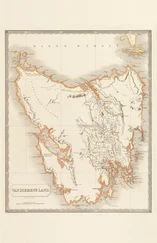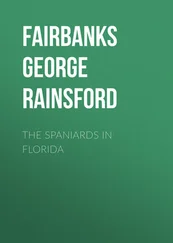Joshua Giddings - The Exiles of Florida
Здесь есть возможность читать онлайн «Joshua Giddings - The Exiles of Florida» — ознакомительный отрывок электронной книги совершенно бесплатно, а после прочтения отрывка купить полную версию. В некоторых случаях можно слушать аудио, скачать через торрент в формате fb2 и присутствует краткое содержание. Жанр: foreign_antique, foreign_prose, на английском языке. Описание произведения, (предисловие) а так же отзывы посетителей доступны на портале библиотеки ЛибКат.
- Название:The Exiles of Florida
- Автор:
- Жанр:
- Год:неизвестен
- ISBN:нет данных
- Рейтинг книги:5 / 5. Голосов: 1
-
Избранное:Добавить в избранное
- Отзывы:
-
Ваша оценка:
- 100
- 1
- 2
- 3
- 4
- 5
The Exiles of Florida: краткое содержание, описание и аннотация
Предлагаем к чтению аннотацию, описание, краткое содержание или предисловие (зависит от того, что написал сам автор книги «The Exiles of Florida»). Если вы не нашли необходимую информацию о книге — напишите в комментариях, мы постараемся отыскать её.
The Exiles of Florida — читать онлайн ознакомительный отрывок
Ниже представлен текст книги, разбитый по страницам. Система сохранения места последней прочитанной страницы, позволяет с удобством читать онлайн бесплатно книгу «The Exiles of Florida», без необходимости каждый раз заново искать на чём Вы остановились. Поставьте закладку, и сможете в любой момент перейти на страницу, на которой закончили чтение.
Интервал:
Закладка:
These demands for negroes alleged to be among the Indians, continued to excite the people of Florida and to perplex the officers of Government, threatening the most serious results, 59 59 Captain Sprague, of the United States Army, so states, in his History of the War.
and continually enhancing the dangers of the Exiles.
The troops at Fort King were called on to aid in the arrest of fugitive slaves; but their efforts merely excited the ridicule and contempt of both Indiana and negroes. These circumstances becoming known to the slaves of Florida, naturally excited them to discontent; and while their masters were engaged in efforts to arrest negroes to whom they had no claim, their own servants in whom they had reposed every confidence, suddenly disappeared and became lost among the Exiles of the interior. The white people became irritated under these vexations. Their indignation against the Indians was unbounded. The Agent, Colonel Humphreys, gave a vivid description of their barbarity, in a letter to the Commissioner of Indian Affairs. 60 60 Vide Letter of the Agent, dated sixth of March, 1827.
But remonstrances with the Indian Department appeared to have no effect. Peremptory orders for the arrest and delivery of slaves continued to reach the Agent. These orders he could not carry into effect , as he could command no force adequate to the arrest of the fugitives. Governor Duval began to regard the Agent as remiss in his efforts, and so reported him to the War Department. Some of the most wealthy Seminoles had purchased slaves of the white people, and for many years, perhaps we may say for generations, had been slaveholders. They held their slaves in a state between that of servitude and freedom; the slave usually living with his own family and occupying his time as he pleased, paying his master annually a small stipend in corn and other vegetables. This class of slaves regarded servitude among the whites with the greatest degree of horror.
The owners of fugitive slaves, or men who pretended to have lost slaves, when able, would seize and hold those belonging to the Indians. The Indians being ignorant of legal proceedings, were unable to obtain compensation from those who thus robbed them of what the slaveholders termed property . This practice became so common that, on the seventeenth of April, many of the chiefs and warriors assembled at the Agency, and made their protest to the Agent, declaring that “many of their negroes, horses, cattle, etc., were in the hands of the white people, for which they were unable to obtain compensation.” Contrary to the treaty of Camp Moultrie, white men were at that time in the Indian country searching for slaves, and the chiefs demanded of the Agent the reason why the white people thus violated the treaty to rob the Indians? The Agent could only reply, that the white men were there by permission given them by the Secretary of War . 61 61 Vide Minutes of Talk held at Seminole Agency, with Treskal, Mathla, and other Chiefs. Ex. Doc. 271, 1st Sess. XXIVth Congress.
So flagrant were these outrages upon the Indians and negroes, that Colonel Brooke, of the United States Army, at that time commanding in Florida, took upon himself the responsibility of addressing the Agent, advising him not to deliver negroes to the white men, unless their “ claims were made clear and satisfactory .” 62 62 Vide Letter of Col. Brooke to Col. Humphreys, 6 May, 1828, contained in the above cited Document.
The District Judge of the United States for the Territory, also wrote Colonel Humphreys, giving his construction of the rules adopted by the Indian Bureau. He thought, in no case, should a negro be delivered up, where the Indians claimed him, until proofs had been made and title established before judicial authority. 63 63 Vide Letter of Judge Smith, May 10, 1828, contained in same Document.
No law was looked to as the rule by which officers of Government were to be controlled in their official duties. The opinion, the judgment, of the individual constituted his rule of action. During the nineteenth century, perhaps no despotism has existed among civilized nations more unlimited, or more unscrupulous, than that exercised in Florida, from 1823 to 1843.
This state of affairs determined the Exiles not to be arrested by white men . Thus, when Governor Duval ordered a compensation for a slave claimed by Mrs. Cook, to be retained from their annuities, the chiefs held a talk with the Agent, and assured him that the “ man was born among the Seminoles, and had never been out of the nation .” 64 64 Vide Statement of John Hick, 15 August, 1828. Ex. Doc. 271, before quoted.
These demands for negroes increased in number; and the whites became more and more rapacious, and the Indians more and more indignant, until hostilities appeared inevitable. The Agent, from long association with the Indians and his knowledge of facts, naturally sympathised with them. He assembled a number of the chiefs at the Agency, and suggested to them the absolute necessity of submitting to the white people; and for the purpose of avoiding further difficulties, advised them to emigrate west of the Mississippi, or, rather, to send a delegation to examine the country; and, as an inducement, offered to accompany their chiefs and warriors on such a tour. To this proposition a few of them consented, and the Agent notified the Department of the fact. 65 65 Vide Letter of Gad Humphreys, Oct. 20, 1828. It probably was the first time the proposition was submitted to the Seminoles.
It was easy to see that, under the existing state of affairs, hostilities could not long be avoided. Up to the period of which we are speaking, the action of our Government had been dictated by those who sought to uphold and encourage Slavery; nor could it be expected that this long-established policy would be suddenly changed, unless such change were peremptorily demanded by the people.
There was apparently but one course to be pursued under this policy – that was the removal of the Indians from Florida. This plan had been recommended by General Jackson ten years previously, and he now being President, had an opportunity of carrying out his proposed policy. To effect this purpose, it would be necessary to negotiate a treaty by which the Indians should consent to abandon Florida and remove west of the Mississippi.
It had long been the policy of those who administered the Government, to select Southern men to act in all offices in which the institution of slavery was likely to be called in question. From the time General Washington sent Colonel Willett to ascertain facts in regard to the controversy between the State of Georgia and the Creek Indians, in 1789, to the period of which we are now speaking, no Northern man was appointed to any office which required his personal attention to the situation of the Exiles. 66 66 Even Mr. Adams, when President, continued in office those men who had been placed there by his predecessors.
In accordance with this practice, General Cass, acting as Secretary of War, appointed Colonel James Gadsden, of South Carolina, to negotiate the treaty of Payne’s Landing. By the preamble of this treaty, the Seminoles stipulated that eight of their principal chiefs should visit the Western country, “ accompanied by their faithful interpreter, Abraham ,” (an Exile, and a man of great repute among both Exiles and Indians,) and should they be satisfied with the character of the country, and of the favorable disposition of the Creeks to reunite with the Seminoles as one people, they would, in such case, agree to the stipulations subsequently contained in said treaty.
Читать дальшеИнтервал:
Закладка:
Похожие книги на «The Exiles of Florida»
Представляем Вашему вниманию похожие книги на «The Exiles of Florida» списком для выбора. Мы отобрали схожую по названию и смыслу литературу в надежде предоставить читателям больше вариантов отыскать новые, интересные, ещё непрочитанные произведения.
Обсуждение, отзывы о книге «The Exiles of Florida» и просто собственные мнения читателей. Оставьте ваши комментарии, напишите, что Вы думаете о произведении, его смысле или главных героях. Укажите что конкретно понравилось, а что нет, и почему Вы так считаете.












